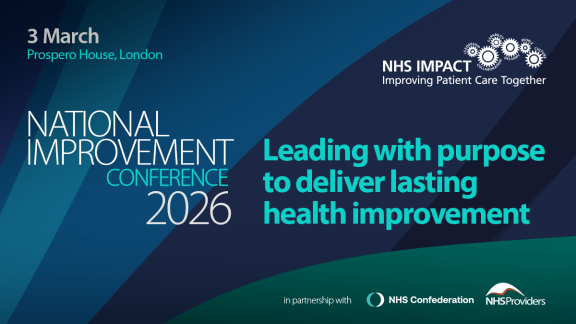Building a supportive and empowering first 1,000 days of life

An innovative community and inpatient mental health partnership in Birmingham works with partners to support long-term emotional and physical wellbeing and resilience among children in the first 1,000 days of life.
Key benefits and outcomes
- Systems approach to improving the emotional and social support for children, parents and families.
- Vertical and horizontal integration of parent-infant support services.
- Service provision created based on local assets and needs.
What the system faced
Birmingham is the seventh most deprived local authority in the country and faces significant challenges in terms of indicators of adversity and increasing health inequalities encountered by many children and families in the city. It has the largest proportion of children aged up to five years of any local authority in England, and according to the last record of population by ethnicity, nearly 59.9 per cent of children aged up to four belong to a BME ethnic group.
Forward Thinking Birmingham (FTB) is an innovative community and inpatient mental health partnership that, alongside partners, offers care pathways of mental health assessment and treatment for young people from 0 to 25 years old. The service has a longstanding multi-disciplinary commitment to working with children under five, but high levels of need among older pre-school children have historically been a barrier to developing early and preventative interventions during the first 1,000 days of a child’s life, when the architecture of the brain is being laid down.
This timeframe offers a crucial period of opportunity for early intervention and prevention to support long-term emotional and physical wellbeing and resilience.
What the system did
To help tackle the challenges of adversity and increasing health inequalities, FTB decided to work alongside Birmingham and Solihull Integrated Care System (BSol ICS) to support early parent-infant relationships, which provide the critical building blocks for lifelong emotional and physical health.
FTB reprioritised resource to invest in an exploratory, fixed-term programme of work looking at the need and opportunities around the first 1,000 days of children’s lives.
This resource has allowed FTB to work with trust public health colleagues to lead on an ICS-wide assessment of need around support for early parent-infant relationships. Supported by the Parent-Infant Foundation, and conducted on behalf of the wider network and in partnership with Solihull, this work includes an analysis of population need, mapping of existing service provision, workforce and training assessment, and engagement with service users. This work is intended to help with efforts to coordinate support across the ICS and achieve the best impact from the resources currently available.
Conversations with partners help identify the parent-infant relationships that are considered most vulnerable, and opportunities for proof-of-concept work are developed to support these relationships. For example, working in partnership with Breaking the Cycle (BTC), a non-statutory programme supporting birth parents who have lost a child or more to adoption or long-term fostering, FTB is successfully delivering a specialist parenting programme to parents who have children who remain in their care. This work is overcoming traditional barriers to mainstream parenting support access by offering tailored support exclusively to BTC families in a familiar setting, supported by trusted staff.
As well as building relationships and facilitating vertical integration, FTB’s programme of work has supported the creation of collaborative (horizontal integration) interagency spaces and forums to bring together stakeholders supporting parent-infant relationships during the first 1,000 days.
This includes an interagency infant mental health steering group, located within the local maternity and neonatal system (LMNS), and developing a core membership representing child mental health, perinatal mental health, midwifery, health visiting, early years education, early help, public health, and commissioning. The group provides a reporting, co-ordinating, collaborating, and championing mechanism for provision supporting infant mental health across the ICS footprint via the parent-infant relationship. Another newly created forum is a multiagency working group for vulnerable parent-infant relationships. This group is focused on interagency pathways and operational delivery, and works with the infant mental health steering group to allow a two-way flow of information.
Results and benefits
Improving the emotional and social support for children, parents and families requires a long-term and coordinated response nationally and locally. The exploratory, fixed-term programme of work undertaken by FTB has led to the creation of a substantive consultant infant mental health lead role within the service.
Informed by the outcomes and using the outputs of the first 1,000-day assessment of need, and working collaboratively within the newly formed interagency groups and forums, this role will continue to work with partners to build a range of universal and targeted support services to improve family wellbeing. The alignment of system priorities through the establishment of the collaborative interagency forums and work programs, as well the assessment of need to match provision, has been acknowledged by the system as a vital step to encourage joined-up local action. As stipulated within the 2019 Health and Social Care Committee report on the first 1,000 days of life, high-quality local services for children, parents and families need to be grounded on the following seven principles:
- Prevention and early intervention.
- Enhance capability and capacity of workforce.
- Community partnerships.
- Meeting the needs of marginalised groups.
- Greater integration and multi-agency working at system, place and neighbourhood levels.
- Proportionate universalism – needs and outcomes focused
- Evidence-based provision.
Calculations from the Birmingham Women and Children’s NHS Foundation Trust Public Health team suggest that the population of babies and young children from conception to aged two in Birmingham will be around 30,671 in any one year. In terms of need, modelling suggests that an estimated 30 per cent of this population would benefit from targeted/enhanced parent-infant relationship support and 20 per cent of this population would benefit from specialist parent-infant relationship support. There will be a level of unmet need in terms of targeted and specialist support with modelling suggesting that approximately 33 per cent of families who would benefit from targeted or specialist support will not access services for a variety of reasons.
Overcoming obstacles
A coordinated and integrated approach with a focus on early intervention, prevention and reducing inequalities is required to deliver mental health care in FTB that meets perinatal, infant, and family need. FTB alone will not be meeting the need of parent-infant relationship support but will be working in partnership with statutory and non-organisations to create a health and wellbeing architecture for parents and children. Developing an effective system across the city for the first 1,000 days of life requires careful, relationship-based partnership working that addresses a wide spectrum of need, encompassing acute and community-based mental health care that supports a family-focused therapeutic framework.
Takeaway tips
Reconfiguring and transforming the system requires:
- high-level strategic commitment and senior management support that understands the challenges and opportunities of system change
- rhe need to be aspirational, but understand and respect contextual history and challenges
- understanding of the local landscape, key stakeholders and their priorities by establishing and connecting within collaborative spaces and forums.
Further information
For more information on the work in this case study, please contact Dr Clare Nuttall, consultant clinical psychologist: clare.nuttall1@nhs.net



